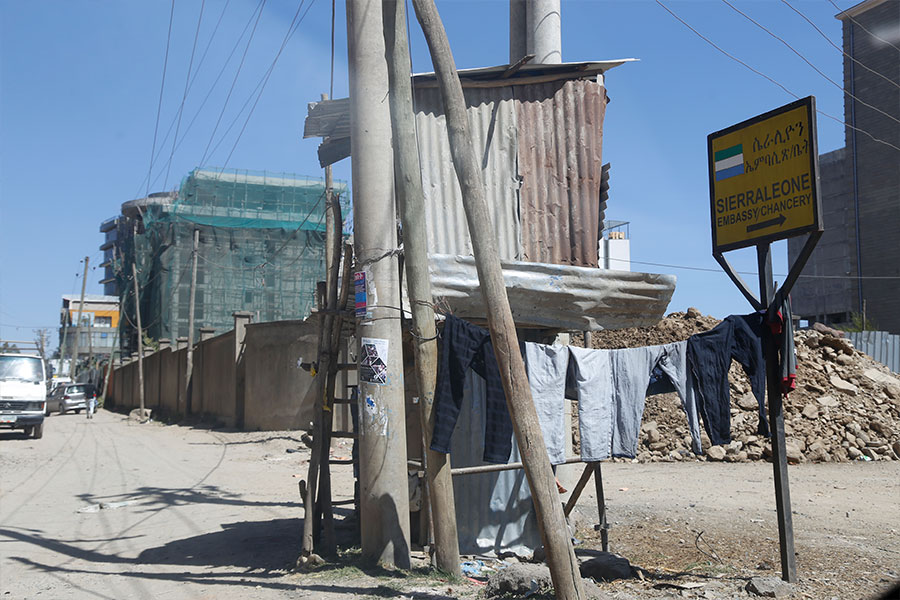
A sweeping reform entailing a board of directors establishment across hospitals and health centres under the purview of the Addis Abeba Health Bureau is initiated as part of a radical overhaul of healthcare administration and governance.
A seven-member board of directors will lead the six hospitals while the 98 health centres will be overseen by a nine-member board comprised of representatives from employees, civic society, the community and the city administration.
The modality proposed under the bill awaiting approval expects the six hospitals to report to the Bureau while health centres will be accountable to their respective district health bureau offices. The members are granted a three-year appointment in a maximum of two terms.
Health Bureau officials suggest that reforms to administrative structures will bring autonomy, transparency and accountability, which in turn will improve healthcare services.
According to Mulugeta Endale (MD), deputy head of the Bureau, the committee established to lead the health sector was not functioning properly. He attributed it to poor planning skills and inability to make administrative decisions.
Mulugeta considers boards to be better structured in passing down administrative services while maintaining an economic organisation in a health sector poised for deepening decentralisation.
"It'll take some burden off our shoulders," he told Fortune.
Boards are expected to facilitate linkages, determine services to outsourced third-party contracts, and examine and approve annual plans of the facility while maintaining follow-ups on overall activities receiving sitting allowances for their services.
Informal boards comprised of Wereda and regional officials, vestiges of decentralisation efforts in the early 1990s, had been discarded by the Addis Abeba Health Bureau two years ago as it started to draft the administrative reform.
Unrepsponiveness to public needs and a laboured administrative structure had prompted the health bureau to undertake supervision responsibilities as a regulatory framework was crafted over the past two years.
A study by Columbia's Mailman School of Public Health indicates that a lack of clear instructions at the central level and inadequate dissemination of information has resulted in Ethiopia failing to achieve universal health care despite successive plans since the 1970s.
Staff at the 91-year-old Ras Desta Damtew Hospital, serving close to half a million patients yearly, claim the institution has been wrought with disputes and declining quality of health service over the years due to the absence of a functional board.
Its Medical Director, Teshome Hunde (MD) is one of 200 practitioners who expressed joy over the proposed reforms to the administrative structure. The lack of functional management to oversee finances and formulate annual strategic directions has hampered the hospital's expansion capabilities, according to Teshome.
"It'll improve quality of service," he told Fortune.
Ras Desta had an operational budget of 365 million Br last year, with 17pc being internal revenues while the rest is allocated by the Health Bureau. However, a persistent lack of supplies had caused delays in service provision, according to Teshome.
"A board will do us good with proper implementation," he told Fortune.
A study by the National Health Institute points to the lack of human resources as the primary problem faced by public hospitals, emphasising its importance in bolstering the health service.
The sentiment is shared by managers of the health centres.
The Managing Director of one of the 14 health centres in Addis Ketema District, Fikadu Worku, recognises an imminent need for a board structure. He struggles to manage 110,000 patients despite having three medical doctors and 16 health officers as staff.
"We have a functional capacity to serve nearly half of it," he told Fortune of their struggles.
Fikadu indicated that it has been several decades since the health centre went through any expansion, only managing to obtain 35pc of the budget required during the last fiscal year. He said budgetary requests made to the slow-moving and penny-counting Wereda officials have not bore fruit, underscoring an in-depth reform will be needed to enhance the quality of health care.
"The struggle is real," he told Fortune.
Economists in the health sector have expounded on the important role boards play in augmenting technical services by centralising decision-making. Getasew Amare, a health economist, indicated that this has been one of the country's health policy reforms initiated two decades ago despite showing meagre results.
"It could have brought a lot of changes if implemented right," he argued.
Even though the health economist approved of the board's composition, pointing out that it reflects both professional and political considerations. He, however, questioned whether effective implementation would ensue.
"Monitoring capabilities remain a question," he told Fortune.
For boards to be effective, they need to have continuous capacity building regarding their roles and responsibilities, according to Getasew, who recommends taking a peek at other facilities that are implementing the same strategy and learning from their challenges and successes.
"Attention to system design and accountability remain crucial," Getasew told Fortune.
In Ethiopia, St. Paul Hospital Millenium Medical College has often served as a comparative contrast to the systemic administrative malaise that plagues the rest of the public health sector.
It functions under a 10-member board of directors comprised of Minister of Planning & Development Fitsum Assefa (PhD), State Minister for Health Dereje Duguma (MD), and the Ethiopian Medical Association President, Tegbar Yigzaw (MD), which conducts quarterly performance assessments.
Provost of the hospital working under a 1.8 billion Br budget for the year, Sisay Sirgu (MD) points to the effective use of retained earnings under close supervision of the board, which monitors performance year-round as the reason for the hospital's reputable name.
"We won't have it any other way," he told Fortune.
PUBLISHED ON
Oct 07,2023 [ VOL
24 , NO
1223]

Commentaries | Jun 07,2020

Fortune News | Dec 14,2019

Life Matters | Nov 27,2021

Fortune News | Jun 29,2024

Radar | Aug 22,2020

Radar | Dec 19,2020

Radar | Apr 21,2024

Fortune News | Jun 25,2022

Fortune News | Dec 17,2022

Verbatim | Nov 30,2024

Dec 22 , 2024 . By TIZITA SHEWAFERAW
Charged with transforming colossal state-owned enterprises into modern and competitiv...

Aug 18 , 2024 . By AKSAH ITALO
Although predictable Yonas Zerihun's job in the ride-hailing service is not immune to...

Jul 28 , 2024 . By TIZITA SHEWAFERAW
Unhabitual, perhaps too many, Samuel Gebreyohannes, 38, used to occasionally enjoy a couple of beers at breakfast. However, he recently swit...

Jul 13 , 2024 . By AKSAH ITALO
Investors who rely on tractors, trucks, and field vehicles for commuting, transporting commodities, and f...

Jun 28 , 2025
Meseret Damtie, the assertive auditor general, has never been shy about naming names...

Jun 21 , 2025
A well-worn adage says, “Budget is not destiny, but it is direction.” Examining t...

Jun 14 , 2025
Yet again, the Horn of Africa is bracing for trouble. A region already frayed by wars...

Jun 7 , 2025
Few promises shine brighter in Addis Abeba than the pledge of a roof for every family...